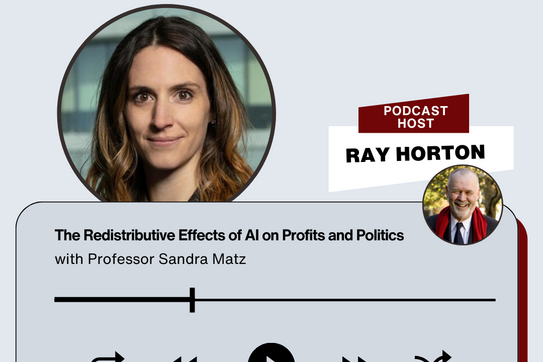Artificial intelligence, according to some, is far and away the most important innovation in history with the capacity to bring unprecedented good and unprecedented evil to humankind. In this episode of More MPE, host Professor Ray Horton speaks with Sandra Matz, the David W. Zalaznick Associate Professor of Business at Columbia Business School.
Matz begins by distinguishing big data and artificial intelligence, the former being the raw material the latter uses for its designer’s purposes, which revolve around “profiling” individuals to identify who might be amenable to “targeting” for one purpose or another. She then provides examples, revolutionary examples, of how AI could be put to good use in fields like business and public health before turning to uses with disastrous consequences.
The conversation turns to regulation, which at bottom involves the attempt by law to steer AI from bad uses. Congress is studying the issue In the United States, though the politics of regulating AI, like everything else, are very complicated in America. Matz notes that the European Union has implemented a regulatory regime that relies heavily on individuals to reclaim their once-private information, an approach she doesn’t believe goes far enough to limit profilers. In the final analysis, regulation by government will be difficult because the differences between good and bad uses are not black and white.
Matz concludes that the key to regulating AI may lie in the form of data cooperatives where managers have a fiduciary relationship to act in the best interest of members.
Finally, the discussion turns to the impact of AI on business education. At CBS, she notes that each of the School’s divisions is now offering courses on AI. She closes by noting that ChatGPT could develop the syllabus for a course on Modern Political Economy and somebody might replace the professors who teach the course.
Mentioned in this episode:
- Sandra Matz, (Columbia Business School)
